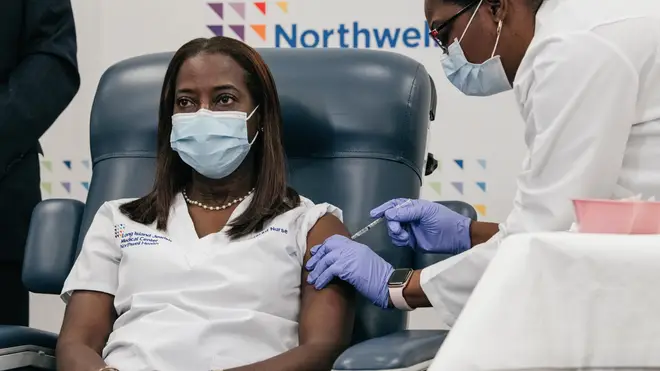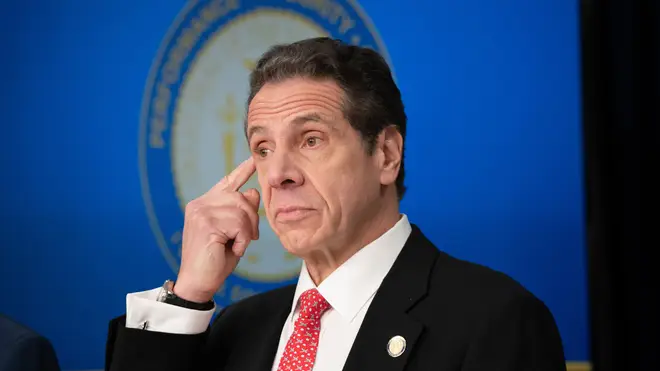
Matthew Wright 7am - 10am
14 December 2020, 22:14

The US death toll from coronavirus has topped 300,000 on the day the country began dispensing Covid-19 vaccines in a huge campaign to conquer the outbreak.
The number of deaths is equivalent to repeating a tragedy on the scale of Hurricane Katrina every day for five and a half months, is more than five times the number of Americans killed in the Vietnam War, and is equal to a 9/11 attack every day for more than 100 days.
"The numbers are staggering - the most impactful respiratory pandemic that we have experienced in over 102 years, since the iconic 1918 Spanish flu," Anthony Fauci, the government's top infectious disease expert, said days before the milestone.
The death toll was reported by Johns Hopkins University from data supplied by health authorities across the US. The real number of lives lost is believed to be much higher, in part because of deaths that were not accurately recorded as coronavirus-related during the early stages of the crisis.
Globally the virus is blamed for more than 1.6 million deaths.
The US crossed the threshold on the day health care workers rolled up their sleeves for Pfizer's Covid-19 shot, marking the start of the biggest vaccination campaign in American history.
If a second vaccine is authorised soon, as expected, 20 million people could be immunised by the end of the month.

It comes as a New York intensive care nurse became the first person in the US to be vaccinated against coronavirus.
Sandra Lindsay was given her first dose of the Pfizer-BioNTech vaccine by Dr Michelle Chester at the Long Island Jewish Medical Centre in Queens on Monday.
State Governor Andrew Cuomo watched via video as the critical care nurse got her vaccine.
Asked how she was feeling, Ms Lindsay said: "Great. I feel hopeful today, relieved."
Mr Cuomo thanked the nurse and Dr Chester "for everything you've done for all New Yorkers through this pandemic".
He said: "I know how horrific it was. It was the modern-day battlefield. You put your fear aside and you stepped up every day.
"This vaccine is exciting. I believe this is the weapon that will end the war. Now we just have to do it. We're all with you."

Biden: US policing reforms long overdue
Meanwhile, a sea change in Washington is fast approaching after an election that was, in large part, a referendum on the Trump administration's handling of the virus.
President-elect Joe Biden has made clear that his first priority will be a comprehensive and disciplined effort to defeat the outbreak.
Read more: Game over for Donald Trump as US Supreme Court throws out final major election case
Read more: Donald Trump says he will leave White House if electoral college confirms Biden win
Experts say it could take well into spring for the shots and other measures to bring cases and deaths under control in the US.
With cold weather driving people inside, where the virus spreads more easily, and many Americans disdainful of masks and other precautions, some public health authorities project 100,000 more could die before the end of January.
"We are heading into probably the worst period possible because of all the things we had in the spring, which is fatigue, political resistance, maybe the loss of all the goodwill we had about people doing their part," said Jennifer Nuzzo, a public health researcher at Johns Hopkins.
She contrasted the government's scattershot response with the massive mobilisation undertaken after nearly 3,000 Americans were killed in the September 11 terrorist attacks in 2001.
"To think now we can just absorb in our country 3,000 deaths a day as though it were just business as usual, it just represents a moral failing," she said.